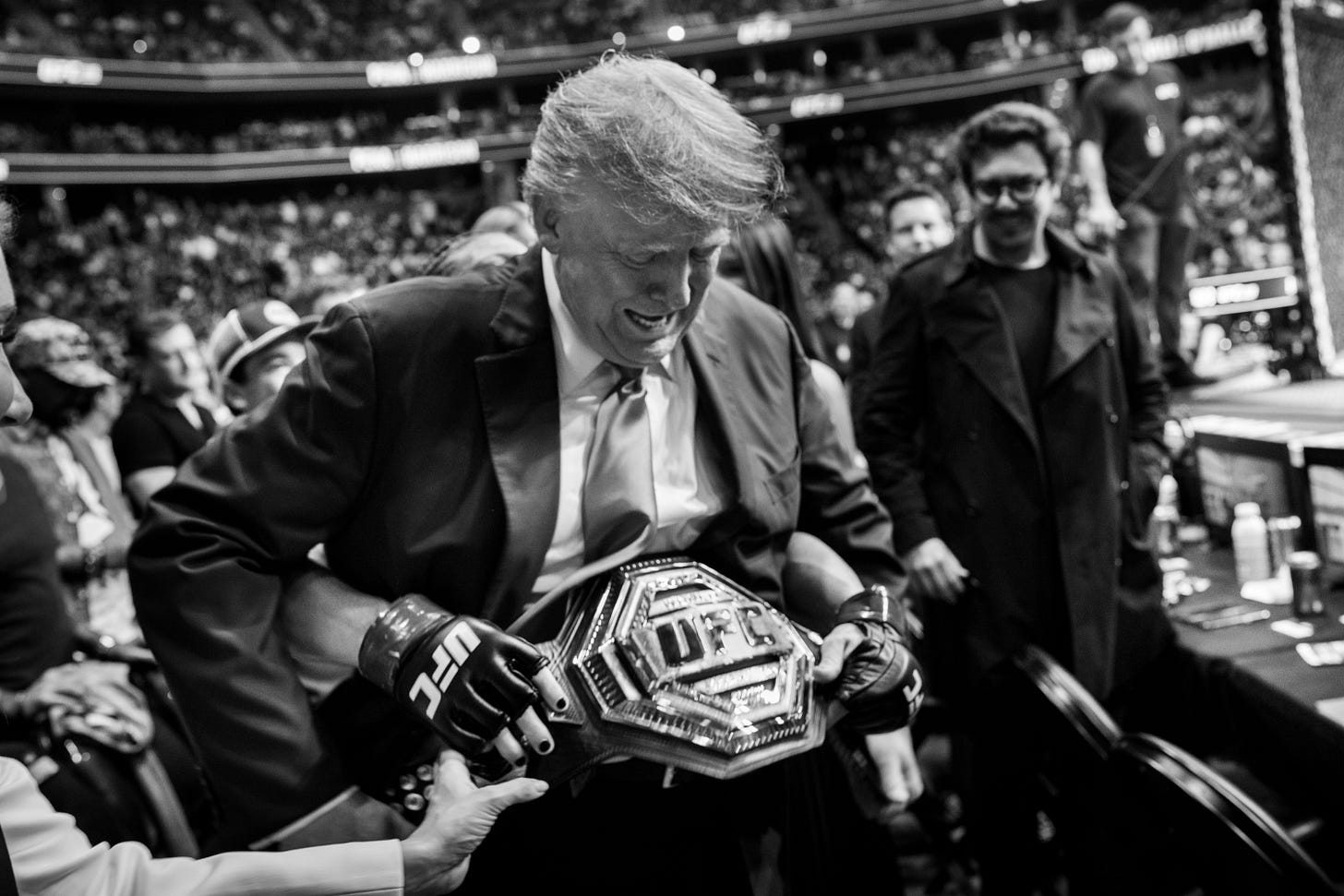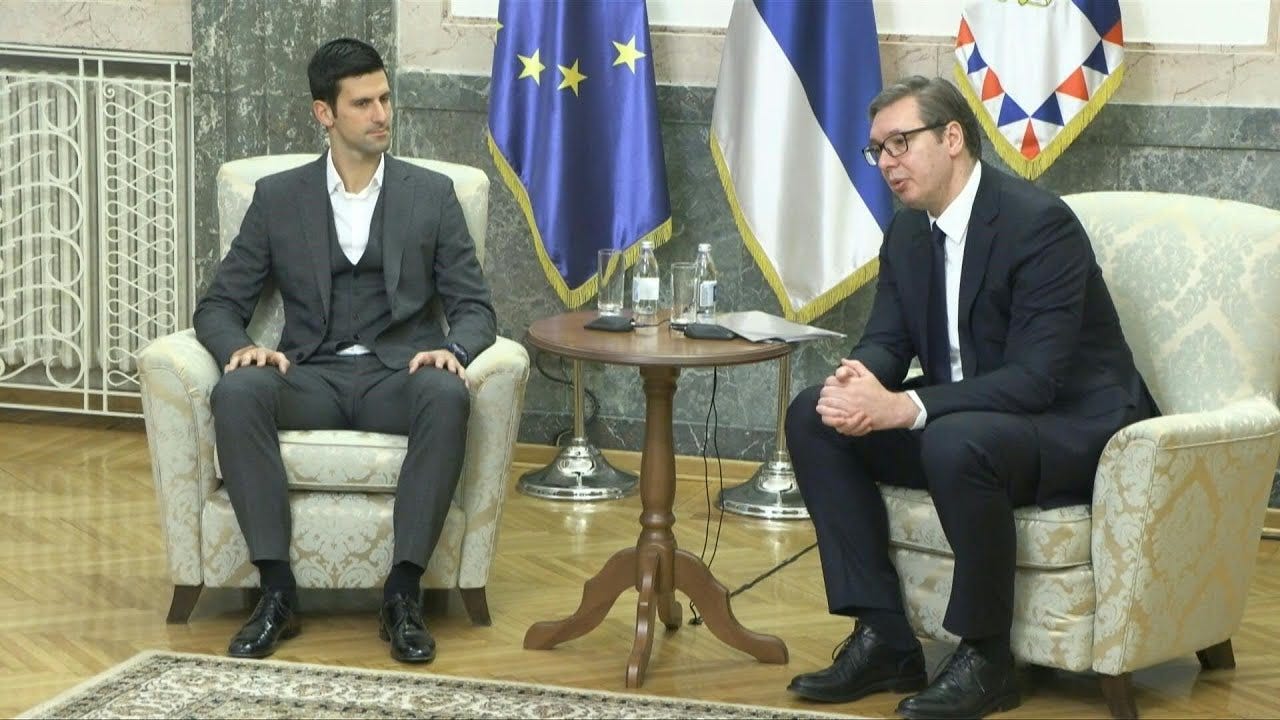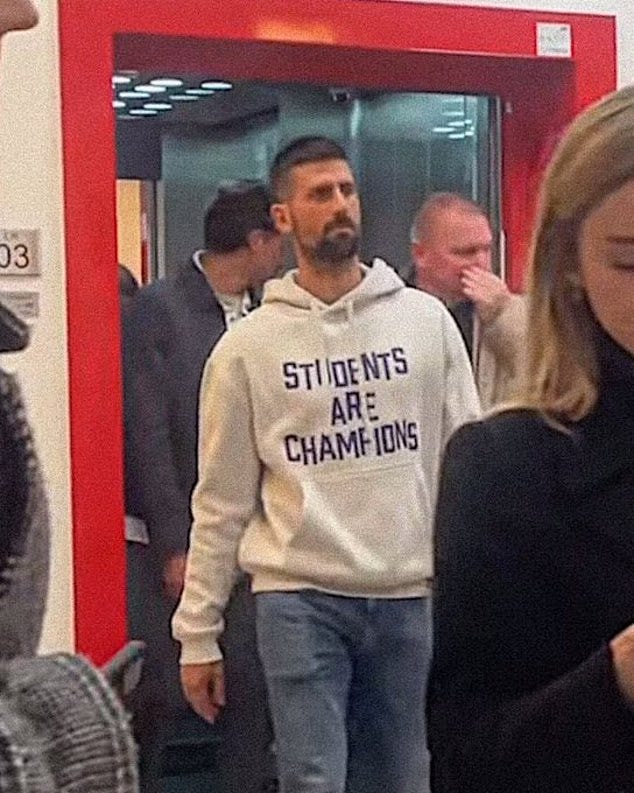For Djokovic, it’s tennis abroad, politics at home
This week's roundup: Djokovic becomes target of Serbian gov; UFC White House event confirmed; Ronaldo stars in Saudi tourism ad; Gulf states purchase F1 champs; Canada sports system "broken."
Welcome to Everything is Fine!—a bi-weekly round-up post that highlights some of the more absurd sport-politics stories that you may have missed amid the never-ending news cycle. This post is available to free subscribers and is presented by Sports Politika, a media venture founded by investigative journalist and researcher Karim Zidan that strives to help you understand how sports and politics shape the world around us.
If you share this vision, please consider supporting us by joining our community and becoming a paid subscriber. We are currently running a special offer whereby you can secure a subscription at a 40% discount—fixed permanently at that price.
I’ve never been much of a Novak Djokovic fan.
With the least compelling style of his Big 4 contemporaries, compounded by his stubborn anti-vaccine stance, embrace of wellness conspiracies, and fervent nationalism, there was little for me to enjoy.
So imagine my surprise when I saw that Djokovic was among the voices backing the student-led protests in Serbia against the country’s ruling party.
The protests erupted in November 2024 following the collapse of a concrete and glass canopy in a recently renovated railway station that killed 16 people, including two children, in Serbia’s second largest city of Novi Sad. The demonstrators blamed cronyism and corruption within Serbia’s government and construction industry for the accident.
Since then, a student-led movement of hundreds of thousands of Serbians have held mass demonstrations, occupied university campuses and blockaded roads. They developed a rich symbolic language: a blood-red open hand, blank sheets of paper, public readings of the Constitution. Their peaceful activism continued to gather strength, morphing over nine months into one of the largest protest movements in decades.
Djokovic publicly backed the protestors on social media, writing in December: “As someone who deeply believes in the power of youth and their desire for a better future, I believe it’s important that their voices are heard.” The following month, he dedicated an Australian Open victory to a student who had been struck by a car during a protest, and in March, he shared a photo of one of the largest demonstrations to date—attended by roughly 300,000 people—captioning it: “History, amazing.”
He further signalled his solidarity at the Belgrade derby basketball match, where he was seen wearing a jumper emblazoned with the slogan: “Students are champions.”
Djokovic has not explicitly spoken out against Serbian President Aleksandar Vučić. In fact, the two maintained a friendly relations over the years. In 2022, the tennis champion met with Vucic in a public appearance, thanking his administration as well as his fellow citizens for their support during the time he was detained and deported from Australia over his vaccination status. However, that has not stopped the Serbian government and its loyalists from taking aim at the national icon.
Over the past few months, Serbian authorities have reportedly launched a smear campaign focused on Djokovic and award-winning director Emir Kusturica. Serbian loyalists and pro-government media outlets labelled Djokovic a “disgrace” for supporting a “colour revolution.” The 24-time Grand Slam champion is now reportedly considering a move to Greece.
Meanwhile, protests against Vucic have intensified following several tragic incidents in Serbia, including high-profile shootings. What began as a call for accountability morphed into demands for early elections to bring an end to Vucic’s 11-year rule over the country.
As anger in the streets mounted, Vucic’s response grew increasingly authoritarian. He launched a crackdown on civil society groups receiving foreign funds while more than a hundred university and high school professors were sacked for their support of the students, replaced by loyalists. Mobs attacked protestors and reportedly looted businesses owned by Vucic’s opponents. Yet as the protests continued to demand his removal, Vucic still found the time to address Djokovic’s support of the protests.
“I will never say a bad word against him. He can support my opponents, but to say anything bad about him – I never will. It would be bad, stupid,' Vucic told local Serbian media. “We will defeat that policy in the elections, but I will always cheer for him with all my heart.”
As Djokovic prepares to face his young rival Carlos Alcaraz in the US Open semifinal Friday, events at home loom larger than the match. Speaking at a press conference on the sidelines of the tournament, he acknowledged that Serbia’s escalating crisis has pushed sport to the background for many citizens.
“There is a serious escalation—we are literally on the verge of civil war,” he said. “I hope the situation will calm down a bit, but there is no indication of that.”
News





